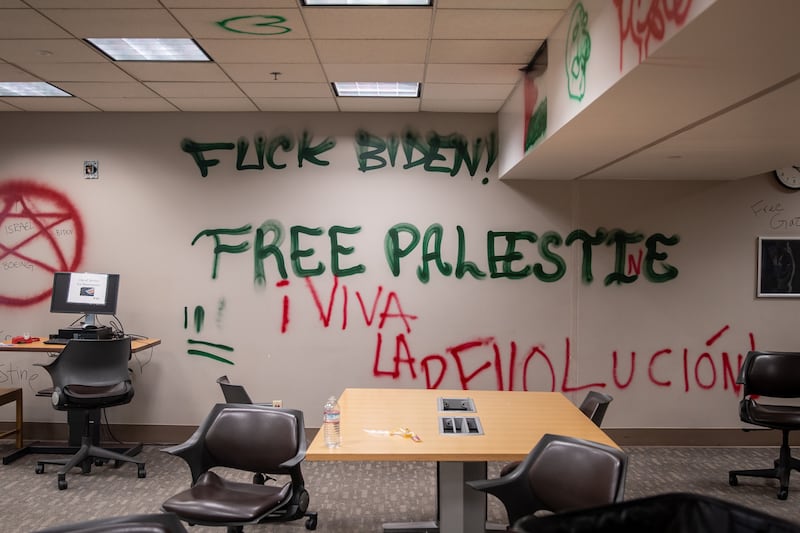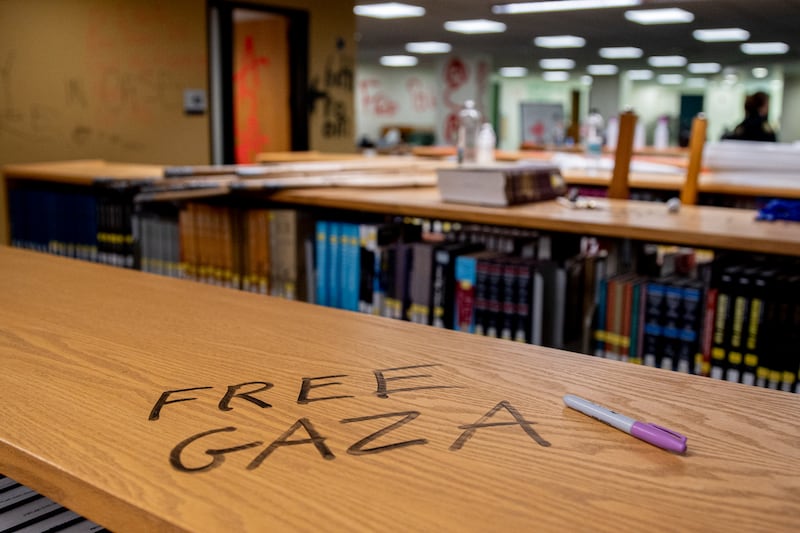Call her a materialist, but when Gaza protesters occupied the library at Portland State University last week, Cristine Paschild worried about the printed word.
Her concern makes sense. Paschild is head of special collections and university archives at PSU. And there are a lot of special items in the PSU library, including records from the Portland chapter of the Japanese American Citizens League, some dating from the period before the Japanese internment during World War II.
Also in the PSU library: medieval manuscripts and a complete collection of comics from Dark Horse, the brainchild of PSU graduate Mike Richardson. Dark Horse publishes Resident Alien, Black Hammer, Hellboy and Avatar: The Last Airbender.
Paschild negotiated with the Gaza protesters to visit the library during the occupation and check on the special collections. They obliged, and what Paschild saw helped put her mind (somewhat) at ease.
“They were very accommodating,” Paschild says in an interview.
Relatively few books had been damaged, Paschild says. Walls had been spray-painted, furniture and computers had been smashed, and fire alarms had been torn from the walls. But the archives were intact.

Portland police cleared protesters from the building on May 2. Paschild and her colleagues are still trying to determine the extent of the damage. PSU has said that the library likely won’t open again until fall. Crews are removing graffiti, and the fire system must be repaired before the building is habitable again.
One bit of misinformation that Paschild would like to correct: The Dark Horse collection wasn’t stolen during the occupation.
There are two copies of all the Dark Horse materials: an archival one and a public one that patrons can read. Before the protest, library staff had moved the public collection but left the sign above empty shelves. Paschild suspects someone saw photos of the shelves and assumed the comics had been stolen.
To the contrary, “a lot of people seem to have been reading them,” Paschild says.
Paschild says she’s been distressed by how people are talking about the library and the damage.
“The library is getting talked about but not talked with,” Paschild says. “You have people who want to use this to vilify all protesters, and others who say, ‘Stop talking about books and computers. What about people?’ For us, it’s a lot more complicated.”
Paschild regrets that the library probably won’t be able to serve students for many months. And until the fire-safety system is back online, the archives are in a certain degree of danger.
“I won’t fully relax until we get the building back online,” she says.

